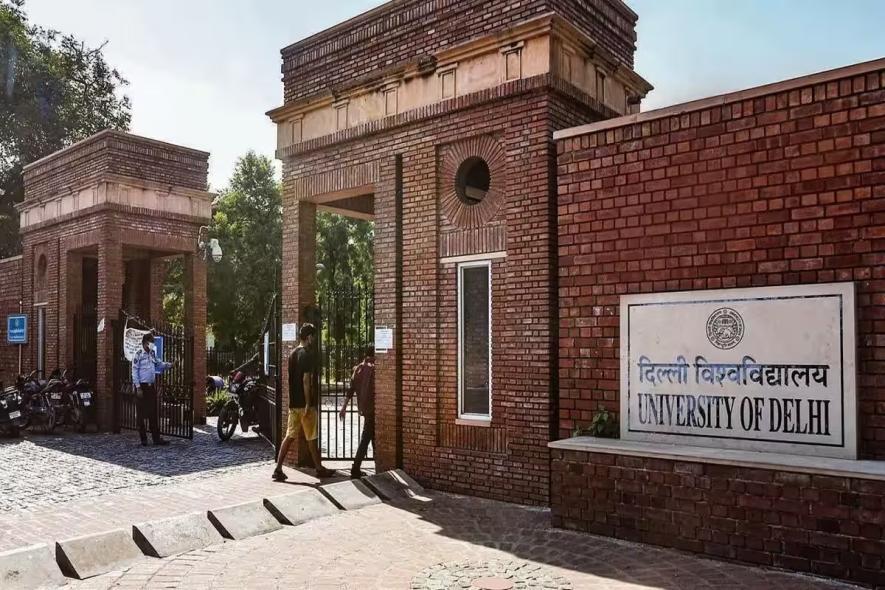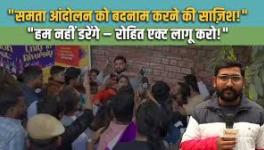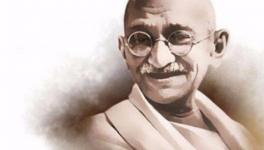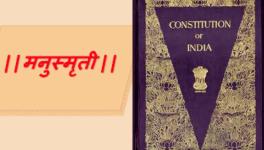DU: Removing Iqbal While Promoting Savarkar is an Attempt to 'Saffronise' Political Science

On May 26, Delhi University's Academic Council meeting made a wide range of changes in the current syllabi of many courses. A major change and major topic of discussion was the removal of Muhammad Iqbal, the writer of the song that became an anthem against British rule, 'Saare Jahan Se Acha'.
Iqbal was part of the B.A. Political Science Syllabus taught in the final semester paper called Indian Political Thought II (IPT 2) or Modern Indian Political Thought. This paper comprises various thinkers and philosophers of Modern India, such as Pandita Ramabai, BR Ambedkar, Mahatma Gandhi, VD Savarkar, etc.
All these thinkers are used to depict various political concepts that become relevant to the study of political science today. Through Ramabai, the Indian political thought on gender is introduced; through Ambedkar, the idea of social justice; through Gandhi Swaraj, and Savarkar, the idea of Hindutva. Similarly, the paper attempts to introduce the concepts of community, self-reflection, and Islamic tradition in Modern India through Iqbal.
A statement from the office of DU Vice-Chancellor read, "Allama Iqbal was dropped from the Political Science syllabus during the discussion on the undergraduate course in the 1014th Academic Council meeting of the University of Delhi. Presiding over the meeting, Vice Chancellor Prof. Yogesh Singh said that those who laid the foundation to break India should not be in the syllabus. The Vice-Chancellor's proposal was unanimously passed by the House."
Another statement released by Akhil Bharatiya Vidyarthi Parishad's Delhi Unit applauded the decision to scrap Iqbal from the DU syllabus; the statement read, "Delhi University academic council decided to scrap fanatic theological scholar Mohd Iqbal from DU's political science syllabus. Mohd Iqbal is called the 'philosophical father of Pakistan'. He was the key player in establishing Jinnah as a leader of the Muslim League. Mohd Iqbal is as responsible for India's Partition as Mohammad Ali Jinnah."
The rationale behind removing Iqbal from both these statements seems to be that since he was a proponent of two nation theory and was in favour of the creation of Pakistan, he should not be taught about to students. The DU VC has also said that our focus should be on teaching national heroes and their thoughts to the students. This reasoning poses a great danger to the quality of the Political Science syllabus and scientific temperament in the discipline.
Degrading an Already Impoverished Syllabus
Modern Indian Political Thought taught in the IPT 2 paper of political science already doesn't include a large range of Indian Political Thinkers; it doesn't have Periyar, Bhagat Singh, EMS Namboodiripad, MN Roy, Hasrat Mohani, and many more whose writings play a crucial role in the development of the modern Indian Political Thought. By choosing to remove Iqbal, the quality of the syllabus further degrades. Iqbal was essential in teaching the values and concept of community in modern India. Without Iqbal, it is almost impossible to understand Islamic tradition and thought in India, which is very crucial for nation-building based on secular ethos.
In his book 'Political Theory: An Introduction' (a text taught in the first semester in B.A. Political Science), Andrew Heywood explains the importance of the dialectical processes while reading any political thought or theory to further establish it as a part of 'Political Science'. Diverse perspectives are required to fully comprehend the contemporary political situations and political processes that lead up to them. Removing Iqbal from the syllabus hampers the students and scholars in understanding these processes and developments.
Disregarding Partition as A Part of Indian History
Partition of India is a part of Indian history that didn't just occur one day. There were situations and political processes that led up to the partition. DU VC's rationale for removing Iqbal points out that the idea of two nation theory shouldn't be studied from the viewpoint of those who propagated it but rather only from its effects and maybe eventually only from a particular narrative.
The partition of the Indian state into three different nations remains hugely relevant in debates, discussions, election campaigning, communal polarisation, etc. If the thought behind the two-nation theory is removed, the whole idea behind partition is removed. This makes partition merely a political incident in history that doesn't have any political processes behind or ahead of it. Forgetting the political processes and causes behind a historical incident will make it easier to change it.
Hero Worshiping and Saffronisation of Political Science
Such a decision to remove a political thinker from the syllabus erases the science part from Political Science; it becomes merely a political 'thing'. The DU VC also said that we should study national heroes instead of teaching about those who divided India.
Political Science developed as a scientific discipline in the 1960s after the behaviouralist movement of David Easton. Through this movement, this discipline established itself as a study of behaviours of Individuals in Society, such as understanding voting patterns, social movements, governance, etc. Hero worshipping in any discipline will only hamper it from further progressing scientifically. When any course is turned into mere propaganda, it stops progressing.
Here, by "national heroes", the DU VC means who the government and ruling party consider the national hero since the Academic Council also discusses adding a specially focused paper for 'Savarkar' that would be taught instead of Gandhi in the fifth semester, and the paper of Gandhi would be introduced in the seventh semester; so clearly those who are doing a three-year degree would only study Savarkar and not Gandhi.
As visible in the DU syllabus, Savarkar has nothing to offer to modern Indian Political thought except for the idea of Hindutva. It is evident from this move that the DU administration is more interested in further saffronising the Political Science syllabus than teaching about national heroes, as there has never been any consideration of adding Bhagat Singh to this paper.
Get the latest reports & analysis with people's perspective on Protests, movements & deep analytical videos, discussions of the current affairs in your Telegram app. Subscribe to NewsClick's Telegram channel & get Real-Time updates on stories, as they get published on our website.
























